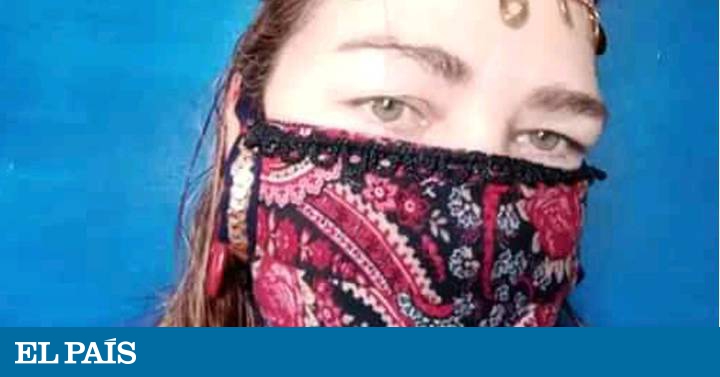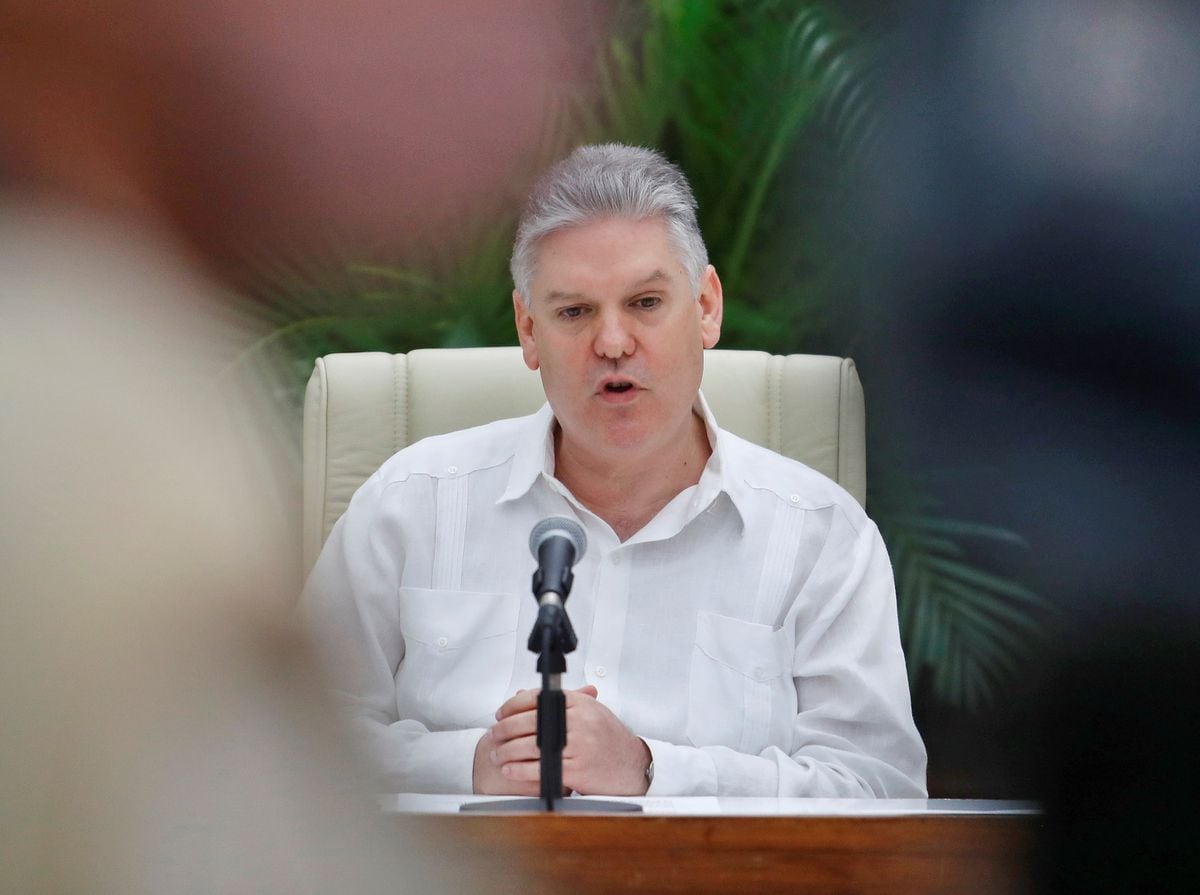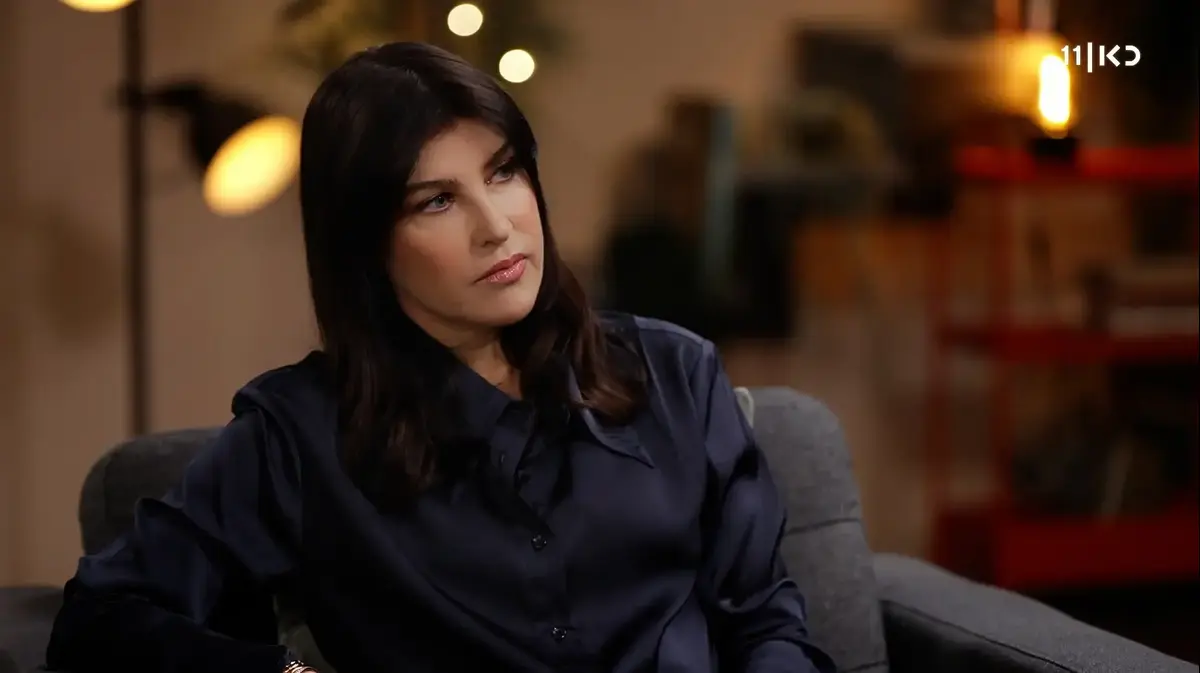In these long, dark times that run and are a breeding ground for depression, anything but letting yourself fall. In the sewing machine, the Cuban psychologist Carolina de la Torre gives the last stitches to the esoteric mask that has been invented for an exceptional draw in these moments of crisis. The protective face mask, which everyone in Cuba knows as a nasobuco , not only aims for the winner to avoid getting coronavirus, but also tries to transmit positive energy to his thousands of confined friends who kill time on Facebook until it rings. the cannon shot at nine o'clock at night in Havana, when the applause arrives in tribute to the health personnel who face the epidemic every day.
The raffle is an excuse and therapy to sustain the spirits of her friends - and Carolina herself - and arose from the need to maintain a pulse and a sense of humor in the face of any adverse situation in life, now with more reason, in these times of epidemic. Carolina says that she could have put a brainy speech online about the psychological need to find recreational activities to preserve mental health in confinement, but says that the objective was not that, but to entertain in practice.
The first thing was to rummage through her drawers and get a hippie fabric , sequins and glitter and colored threads and sit imaginatively sewing on her old Singer machine, a veteran who is about to turn a hundred years old. It took a day, and when he finished he published the photo of the mask on social networks and devised a knowledge competition for people to interact and forget for a while their daily problems and the rigors of confinement.
You had to guess a mysterious animal, which was none other than the manatee, a marine mammal well known to the Taíno Indians who lived in the Caribbean and who he chose in homage to his paternal family, most of them naturalists, and especially his father, Alfredo, a well-known Cuban paleontologist. The call had hundreds of responses on Facebook. Psychologists, writers, actresses, diplomats, plastic artists and other professionals who asked Carolina for clues when they were working participated.
The winner was Lilian Lechuga, granddaughter of Carlos Lechuga, a famous Cuban ambassador who played a leading role during the 1962 Missile Crisis, when the world was on the brink of nuclear war. And since the most famous virus on the planet has proven to be as deadly as any bomb or rocket, Lillian received Carola's nasobucket as if it were the best anti-aircraft defense weapon.
The handover act complied with the social distancing provisions set forth - in Cuba there is no strict quarantine, but there are measures that oblige people to go out into the street with a mask and restrict mobility to what is strictly necessary. Lillian stayed with Carola at her house in the Vedado neighborhood, and the psychologist came down from her apartment armed with a three-meter stick and her mouth mask hung on the end; Thus, without any physical contact, the operation ended.
It must be said that Carolina de la Torre is one of the most prestigious Cuban psychologists, a former professor at the University of Havana and former president of the Cuban Society of Psychology, teacher of several generations of Cuban professionals who follow her on the Internet. In the nineties she promoted some famous encounters of Marxism and Psychoanalysis on the island that marked a milestone, and she is also the author of a documentary and several books that delve into the identity of the Cuban, as well as an exceptional testimony in which she recounts the latest days of his brother's life after his internment in the UMAP camps, where in the sixties he was confined to homosexuals, religious and all those who did not meet the revolutionary "parameters" (published in Spain by the Verbum publisher).
“ Benjamin, when dying is more sensible than waiting , it is a hard, sad book, of which I have already spoken a lot on the networks; this time it was the opposite, to create something that would serve to release tension and, with a sense of humor, sustain the pulse in these moments of anguish and uncertainty, ”says De la Torre.
So successful was Carolina's first raffle that she embarked on a second one, for which she made a mobile papier-mache ornament with birds, fish and colored beads, that it took her a week to finish. On this occasion, the draw had two moments and consisted of guessing a flower and a bush, which was the siguaraya, a lush wild tree that in Cuba is sacred and is also called road breaker. To him even the great Cuban sonero Benny Moré, the Barbarian of Rhythm, sang: “In my Cuba a bush is born / That without permission cannot be knocked down / Because they are Orishas / That bush is born in the bush / That bush has power / That kills is… siguaraya ”.
Before the siguaraya and the ceiba, the practitioners of the Afro-Cuban religions do witchcraft, since they shelter the orishas, or Yoruba divinities, who rule in the nature and conduct of men. There is Elegguá, who opens the ways, Changó, owner of thunder and virility, who in the Catholic saints syncretizes with Santa Bárbara, Yemayá, who dresses in blue and is the mother of the sea and waters, Obbatalá, owner of the heads.
Cuban confinement: online queues and American movies
Carolina is not religious, but she has an Afro bell in her house that is used in Santeria to “call” these divinities. At nine o'clock at night, he goes out with her to his balcony and touches her hard as a tribute to the toilets. Another neighbor leans out with a police whistle, another sings, each making his own noise. "Like raffles, this helps people to get in touch, something that is needed now more than ever," he says. “I am not in favor of the concept of 'social distancing'; for what we are living is more appropriate 'physical distance', which is the one established by the WHO. Social closeness is almost more important today than before, even if it is in this way ”.
Carolina says that, after so many queues that people in Cuba make to buy anything, from the stress of shortages and from so many days of being locked up at home, a sense of humor is basic. "The other day a friend called me to help her solve a great dilemma: she wanted to know what clothes she wore that night when she looked out on the terrace at the time of applause."
Read more blog topics and follow us on Flipboard








/cloudfront-eu-central-1.images.arcpublishing.com/prisa/4GRYF43Y55DXTPH55MNNOJUJAY.jfif)
